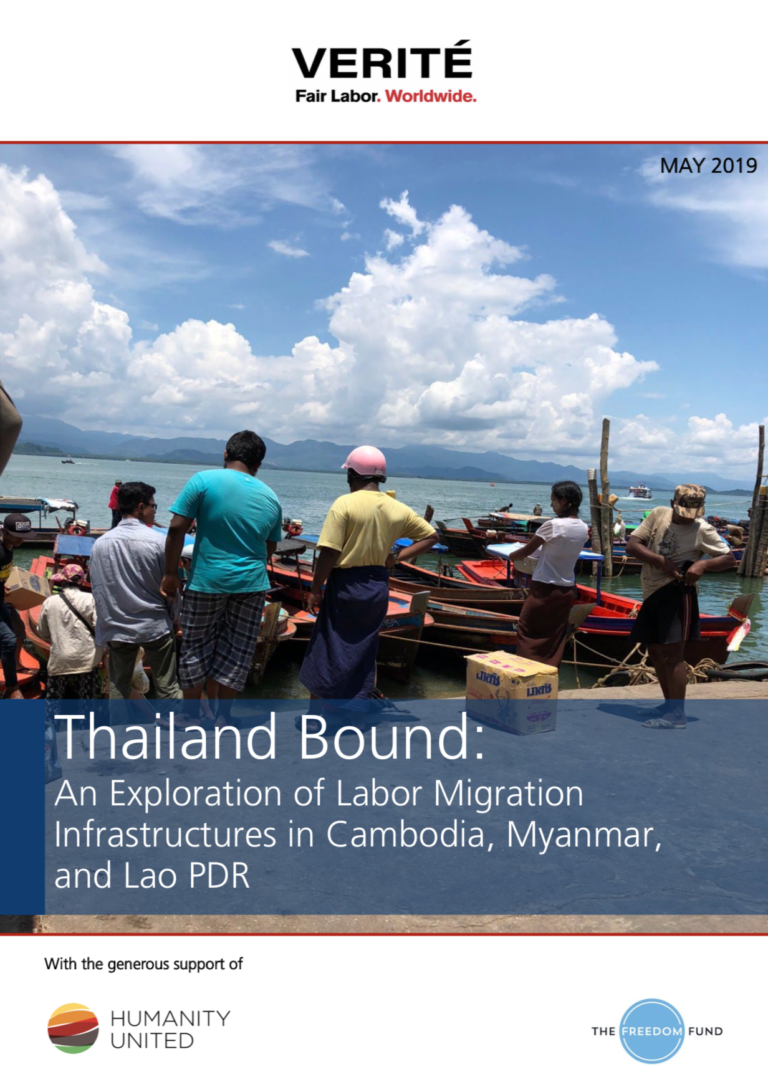The risks to migrant workers using informal and unregulated labour migration channels are well documented: forced labour, including labour trafficking; debt bondage primarily due to high recruitment fees; child labour; excessive work hours; underpayment and withholding of wages; denial of social benefits; and unchecked health and safety hazards are all among the risks migrant workers face.
Regulation and explicit, enforced protections are widely recognized as critical to mitigating such abuses. Reforms have been urged by industry and NGO initiatives, and government actors have taken steps to make the formal, so-called Memorandum of Understanding (MOU) channel, more responsive, efficient, and effective.
Yet despite these well-documented risks and efforts to curtail recruitment abuses, informal recruitment channels continue to thrive; a remarkably high number of workers are still using informal means to enter and work in Thailand.
The focus of this paper is to explain why this is occurring.

